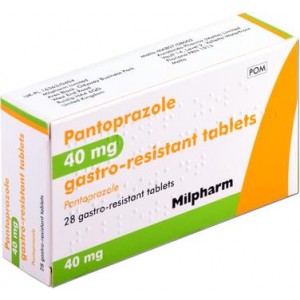Pantoprazole
Prices from £12.99
Review More Prices
- Click on the green "Back To Get Started" button, then click "Start Consultation" button on the next page.
- Fill in our short consultation form.
- Choose delivery method and mode of payment.
- Our team of expert prescribers will assess whether medication is suitable.
- If you get the green light and it is deemed suitable, your order will be processed quickly and efficiently.
Your privacy is important, Prescription Doctor are committed to keeping your details completely confidential.
This is why we also take steps to conceal your prescription products under two layers of packaging.
We have a commitment to delivering a discreet service and understand your need for privacy. We ship all orders via a trackable courier using discreet, plain packaging.
Once your order is dispatched you will receive a tracking number via sms and email.
We deliver medications between Monday and Saturday. You can upgrade to Saturday delivery on Friday.
You should receive a tracking number with your order which you can use this number to track your parcel online. This should give you a clear indication of where your parcel is. If you haven’t received your parcel in the time frame given by our couriers, contact your local depot to find out where it is. You can also contact our support team who will do this for you.
On checkout you will be asked to leave your mobile number so our courier can text you about the delivery. This is also useful if the courier has problems finding your address. We will not use your mobile number for anything else.
You can pay for your order using credit, debit card or via bank transfer.
If you don’t have a credit or debit card you can pay via bank transfer. We will give you a unique reference number at checkout along with details of how to make the transfer. Once the money has cleared in our account, we will process your order.
We are a completely secure site and take many measures to ensure your details are kept safe. We understand that you have a right to extreme privacy when purchasing sensitive health medications. All information that you provide to us is stored on our secure servers. Any payment transactions will be encrypted using SSL technology.
You can pay for your order using credit, debit card and bank transfer.
Card Payment: Please notify us that you wish to cancel your order. Your refund will show available In 1 - 3 days.
Bank Transfer: A member of our team will contact you requesting for your bank details. These details are only used to transfer the funds back into your account.
Table of contents
Patient Reviews: How Pantoprazole Has Made a Difference
What Is Pantoprazole Used For?
Pantoprazole is used to treat several acid-related conditions of the stomach and intestine, including gastro-oesophageal reflux disease (GORD), commonly known as heartburn.
Pantoprazole belongs to a class of medication called proton pump inhibitors. These drugs reduce the amount of acid that the stomach produces.
You may be prescribed a proton pump inhibitor to take alongside an anti-inflammatory, such as naproxen.
Pantoprazole is available in the form of 20 mg and 40 mg tablets.
Prescription Doctor offer a discreet, UK next-day delivery service on orders approved before 3pm, Monday to Friday. You can get a private prescription for Pantoprazole online in the UK from Prescription Doctor today.
To begin your order, simply complete our online medical form. One of our doctors will review your it and issue a prescription of Pantoprazole if it is suitable for you.
What Is Heartburn?
Heartburn is a term patients use to describe symptoms of acid reflux. It is usually described as a burning sensation in the chest.
Heartburn occurs when stomach acid refluxes back up into the oesophagus, causing irritation and inflammation of the unprotected oesophageal lining.
Acid reflux symptoms often feel worse when bending over or lying flat after taking a heavy meal. Common foods and drinks, including carbonated drinks, acidic foods, fruits and juices, high-fat content foods and chocolate, can cause an increase in stomach acid production.
Heartburn is highly likely with the consistent consumption of these foods.
Over a long time, acid reflux may cause severe damage to the lining of the oesophagus. If untreated, the pain of heartburn may worsen. Heartburn should be treated as soon as possible.
How Does Pantoprazole Work?
Pantoprazole works by reducing the amount of acid produced in the stomach.
With controlled production of stomach acid, there is a reduced risk of stomach acid rising and flowing back into the oesophagus, where it may cause uncomfortable and painful GORD symptoms, including heartburn.
How do I take Pantoprazole?
Unless instructed otherwise by your doctor, a dose of one tablet a day for 4-8 weeks is recommended for treatment of heartburn.
Swallow Pantoprazole tablets whole with a glass of water. The tablets may be taken with or without food.
Your doctor will tell you exactly how long you should take Pantoprazole for, and may change your dosage depending on your response to treatment.
What should I do if I forget to take Pantoprazole when I should?
Take the missed dose as soon as you remember.
Take your next dose at the usual time.
Do not take more pantoprazole to make up for the missed dose.
What should I do if I take too much Pantoprazole?
Accidentally taking an extra dose of Pantoprazole is unlikely to harm you.
Speak to your doctor or pharmacist right away if you take too much Pantoprazole.
Pantoprazole side effects and cautions
Before taking Pantoprazole, read the patient information leaflet (PIL) which comes enclosed with your medicine. You should keep this document in case you need to refer to it in the future.
You can read the patient information leaflet online as a PDF. This can be useful to enlarge, download, or print off the safety information for your medicine.
Allergies
Do not take Pantoprazole if you are allergic to proton pump inhibitors or any of the ingredients of pantoprazole.
If you experience an allergic reaction after taking Pantoprazole, speak to your doctor immediately or go straight to your nearest A&E department. Remember to take the packaging and any remaining medicine with you, so that the doctors treating you know exactly what and how much you took.
Signs of an allergic reaction include:
- Difficulty breathing
- Difficulty swallowing
- Raised, itchy, lumpy rash (hives)
- Swelling of the face, lips, tongue or throat
Precautions
Pantoprazole may not be suitable for you. If you are not sure whether it is safe for you to take Pantoprazole, speak to your doctor or a pharmacist.
Speak to your doctor before taking Pantoprazole if you:
- are due to have certain blood tests (Chromogranin A)
- are taking atazanavir (for HIV infection)
- are taking corticosteroids
- have osteoporosis
- have severe liver problems
- take NSAIDs like ibuprofen regularly
Pantoprazole may interact with other medicines you may be taking. During your online medical consultation, you should inform our doctor of all medicines you are currently taking, including those bought over-the-counter, prescription medication, and health or dietary supplements.
Pregnancy and breastfeeding
There is insufficient data to determine the safety of Pantoprazole when used during pregnancy and breastfeeding.
If you are pregnant or breastfeeding, you should speak to your doctor to determine whether it is safe for you to take Pantoprazole.
Side effects
All medicines carry the risk of side effects, though they do not affect everyone. You should familiarise yourself with the list of possible side effects associated with your medicine, which can be found in the patient information leaflet (PIL) supplied with your medicine.
Common side effects of Pantoprazole may include:
- Benign polyps in the stomach
Uncommon side effects of Pantoprazole may include:
- Constipation
- Diarrhoea
- Dizziness
- Dry mouth
- Fatigue
- Flatulence
- Fracture to the hip, spine or wrist
- General malaise
- Headache
- Itching
- Nausea
- Skin rash
- Stomach ache
- Vomiting
Rare side effects of Pantoprazole may include:
- Allergic reaction
- Altered sense of taste
- Breast enlargement in males
- Changes in weight
- Depression
- Fever
- Joint pain
- Muscle pain
- Swelling of the extremities (peripheral oedema)
- Visual disturbances
This is not an exhaustive list of side effects. Further information regarding the safety of Pantoprazole, including a complete list of side effects, can be found within the patient information leaflet (PIL) enclosed with your medicine.
If you experience any side effects, whether listed above or in the safety leaflet which comes with your medicine, you should report them to your doctor or a pharmacist.
Other safety information
Do not take Pantoprazole past the expiry date printed on the packaging.
Always store medicines out of the sight and reach of children and pets.
Do not discard medicines via household or water waste. Ask your pharmacy if they are able to safely dispose any unwanted or expired medicine on your behalf. These steps can help protect the environment.
Never share your medicine with anyone else, even if they experience the same symptoms as you.
Frequently Asked Questions
Will I be able to drive and operate heavy machinery while on Pantoprazole?
If you experience any side effects such as visual disturbance or dizziness, do not drive or operate machinery until you feel better.
Can I drink alcohol while on Pantoprazole?
It is unlikely that alcohol will interact with Pantoprazole. However, you should limit or avoid drinking alcohol during your treatment.
This is because alcohol consumption could worsen your symptoms.
What is the difference between Pantoprazole and Omeprazole?
While Pantoprazole and Omeprazole belong to the same group, they don't work exactly the same.
If you are unsure which heartburn treatment is suitable for you, speak to your doctor or a pharmacist.
How long does Pantoprazole take to work?
It may take a couple of days, or as long as up to 4 weeks, before you notice some change in your symptoms. Speak to your doctor if you see no improvement after two weeks of consistently using the medicine, or if your symptoms worsen.
How do I come off Pantoprazole treatment?
With regular check-ups with your doctor, Pantoprazole is safe for long term use. Your doctor will advise you about when to stop taking the medication.
Sources
Aurobindo Pharma - Milpharm Ltd, 2020. Pantoprazole 20 mg: Summary of Product Characteristics.
NHS, 2021. Pantoprazole.
Treatment information
- Product Name: Pantoprazole
- Active Ingredient(s): Pantoprazole
- Administration: Oral
- Presentation: Tablet
- Available Strength: 20 mg
- Exemption: Prescription only
- Application: Men and women over 18+
- Dosage: Take one tablet daily
- Description: Pantoprazole is a heartburn medicine which reduces the amount of acid in the stomach
- Drug Class: Proton pump inhibitors
- Alcohol Consumption: Avoid or limit alcohol consumption
- When Pregnant: Do not take Pantoprazole. Speak to your doctor for further information.
- When Breastfeeding: Do not take Pantoprazole. Speak to your doctor for further information.
- Price: 12.99 GBP
Authored & Reviewed By

Mohamed Imran Lakhi
MPharm - Lead PharmacistPublished on: 24/05/2019 Reviewed on: 13/03/2024
Heartburn Alternatives
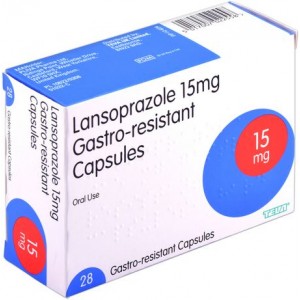
Lansoprazole
- Reduces stomach acid
- Taken once daily
- Relieves heartburn symptoms quickly
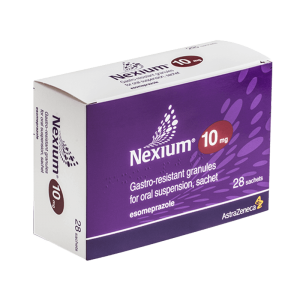
Nexium (Esomeprazole)
- Prevents heartburn
- Lasts 24 hours
- Can be taken with or without food
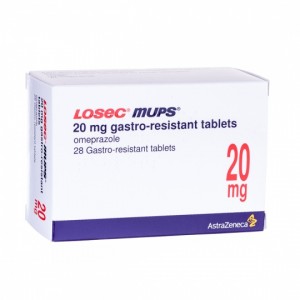
Losec
- Treats heartburn and GORD
- Capsules or tablets
- Consultation with medical professional
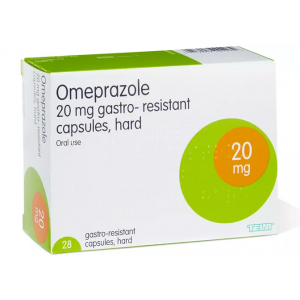
Omeprazole
- Decreases stomach acid
- Variety of doses
- Effective against heartburn symptoms
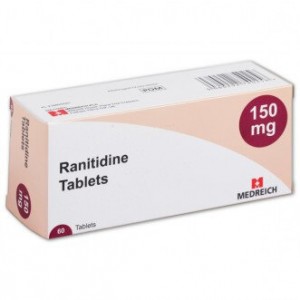

© 2013 - 2025 Al Muhsineen Limited. All Rights Reserved. Registered Pharmacy: 34 Halliwell Road, Bolton BL1 8RL. Registered Office: 254 First Floor, Shearbrow, Blackburn, England, BB1 8DS

